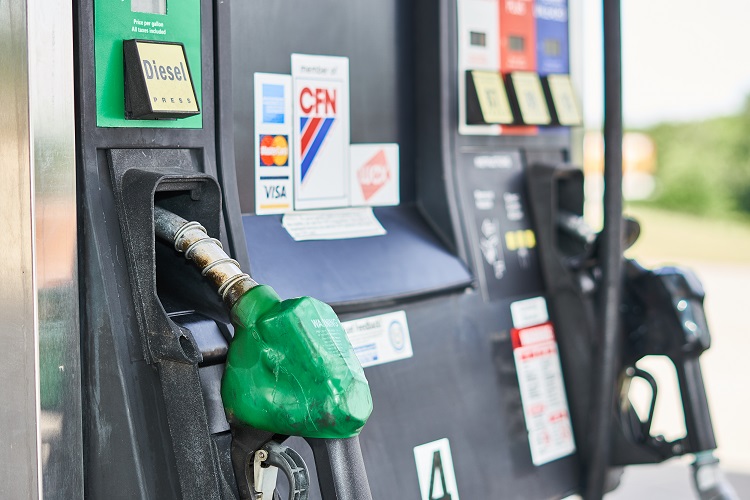Why Choose Fuel Cards Over Traditional Payment Methods?
More and more companies are turning to business fuel cards as their go-to solution for managing fuel expenses across their fleets. These cards offer a secure, flexible, and efficient way to pay for gas, making them a must-have for businesses with mobile teams. But what really makes fuel cards different from traditional methods like cash or credit cards? In this post, we break down the key differences between fuel cards and conventional payment options, and explain why they’re becoming the preferred choice for fleet managers everywhere.

Traditional Fuel Payment Methods: Cash and Credit Cards
Convenience with Hidden Risks
Cash and credit cards have been the standard for fueling company vehicles for years. They’re easy to use, widely accepted, and familiar to most drivers. Some businesses even use credit cards to earn rewards or cashback. However, while these methods may seem simple, they come with serious downsides that can affect both security and efficiency in fleet management.
The Drawbacks of Using Cash and Credit Cards for Fleet Fuel
- Fraud and Theft Risk: Cash is easily stolen and lost, while credit cards can be misused or hacked. Without strong controls, it's hard to track where and how fuel money is being spent.
- Manual Tracking and Reporting: With cash, drivers need to collect receipts and submit them manually. Even with credit cards, tracking mileage and fuel usage is often incomplete, making it harder to manage budgets effectively.
- Lack of Real-Time Insights: Traditional payment methods don’t provide instant data. This delay can lead to unnoticed overspending and inefficient fuel use over time.
- No Performance Monitoring: Without mileage data, it’s difficult to assess fuel efficiency or detect maintenance issues early on. That means missed opportunities for cost savings and better fleet performance.
What Are Fuel Cards?
Designed for Fleet Management
Fuel cards are specifically built for businesses that need to manage fuel costs for their vehicles. They function like credit or debit cards but come with added features such as spending limits, real-time tracking, and detailed reporting. Drivers just swipe the card at the pump, enter a PIN, and input the odometer reading—making the process fast and secure.
How Do Fuel Cards Work?
These cards operate on a private network of fuel stations, covering the majority of gas stations in the U.S. Every transaction is automatically recorded and sent to a web portal, giving businesses full visibility into fuel spending. Plus, drivers can access their accounts through a mobile app, making it easier to manage and monitor usage on the go.
Why Fuel Cards Are Better Than Traditional Payments
Stronger Security and Control
Fuel cards give businesses more control over how and where fuel is purchased. You can set daily limits, restrict purchases to certain locations, and even block transactions during off-hours. This helps prevent fraud and ensures that your fuel budget is used wisely.
Automated Reporting and Accuracy
With fuel cards, there’s no need for manual data entry. All transactions are automatically logged, including mileage, which makes expense tracking accurate and hassle-free. This streamlines accounting and simplifies tax reporting, saving time and reducing errors.
Real-Time Data for Better Decisions
One of the biggest advantages of fuel cards is real-time tracking. You can see every fuel purchase as it happens, allowing you to quickly spot problems or inefficiencies. This proactive approach helps keep costs under control and improves overall fleet management.
Improved Fleet Performance
By capturing mileage data, fuel cards help identify patterns in fuel consumption and driver behavior. This insight can lead to better driving habits, improved fuel efficiency, and fewer maintenance issues. Ultimately, it helps you save money and run a more efficient operation.
Why Your Business Should Consider Fuel Cards
Save Money, Reduce Waste
Fuel cards help prevent unnecessary spending by setting spending caps and monitoring usage. Over time, this can lead to significant cost savings, especially for large fleets with high fuel consumption.
Boost Efficiency and Productivity
With automated reporting and real-time tracking, fuel cards reduce the administrative burden on your team. This allows you to focus on other important aspects of your business, rather than getting bogged down in paperwork.
Minimize Risk and Improve Compliance
Fuel cards offer advanced security features that protect against fraud and unauthorized use. They also help ensure compliance with company policies and financial regulations, giving you peace of mind.
Scalable for Any Business Size
Whether you have a small fleet or a nationwide operation, fuel cards can be customized to meet your needs. Their flexibility makes them a great fit for businesses of all sizes and industries.
Final Thoughts
Fuel cards are more than just a payment method—they're a smart investment in the efficiency, security, and cost-effectiveness of your fleet. From real-time tracking to automated reporting, they offer tools that traditional payment methods simply can't match. If you're looking to take control of your fuel expenses and improve your operations, it's time to consider switching to fuel cards.
For more information on how corporate fuel cards can benefit your business, visit Ricochet Fuel Distributors.
Wire Mesh Fence,Welded Wire Fencing,Security Fencing, field fence, wire mesh fencing, fence wire , fence wire & netting, garden fence, poultry netting, razor wire, razor fence, barbed wire, flexible webnet wire mesh,webnet wire mesh fencing
SHENZHOU SHUANGYOU MESH CO.,LTD. , https://www.firstwiremesh.com